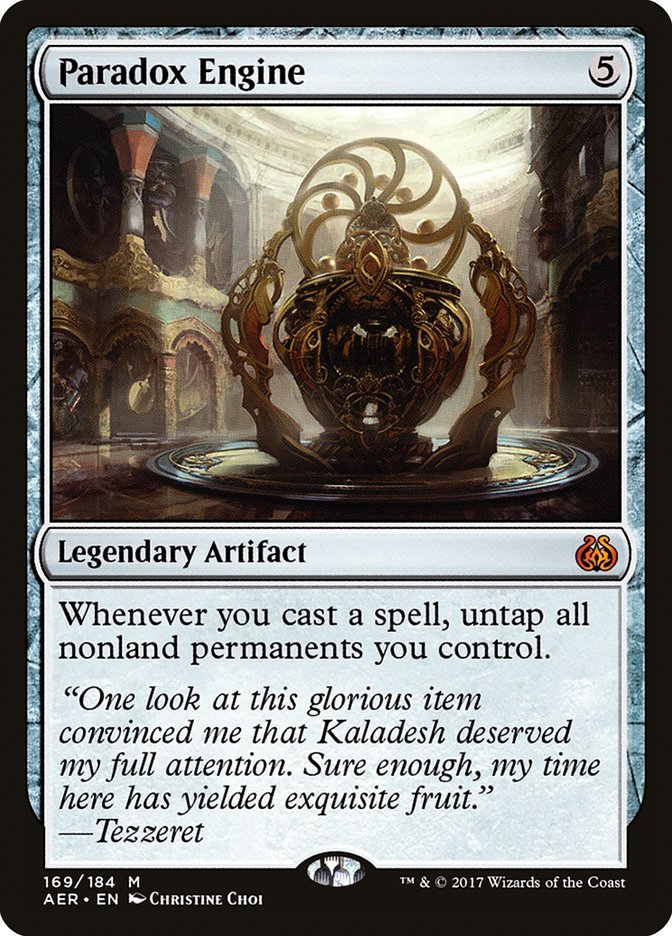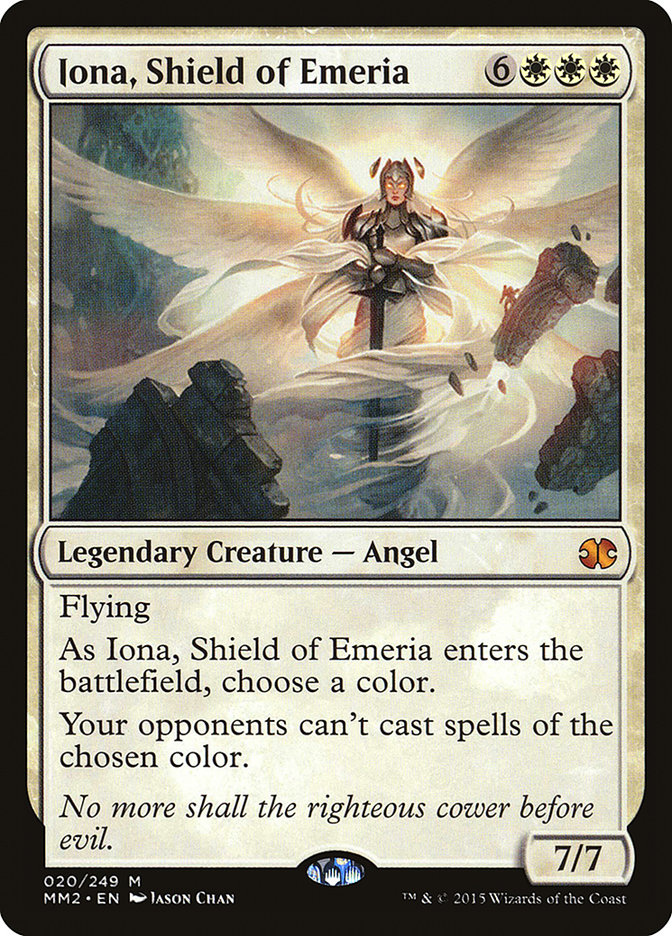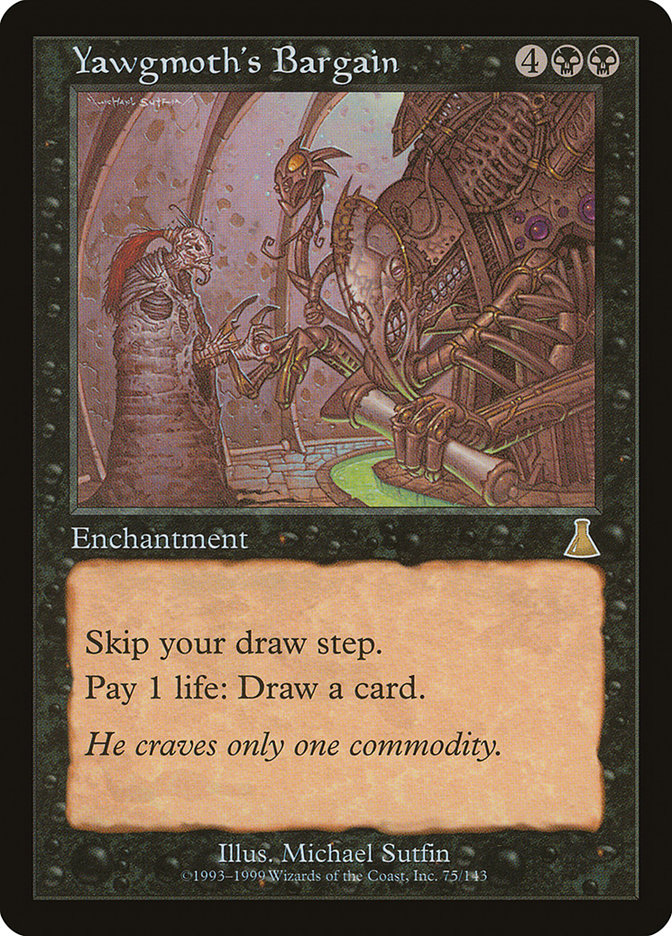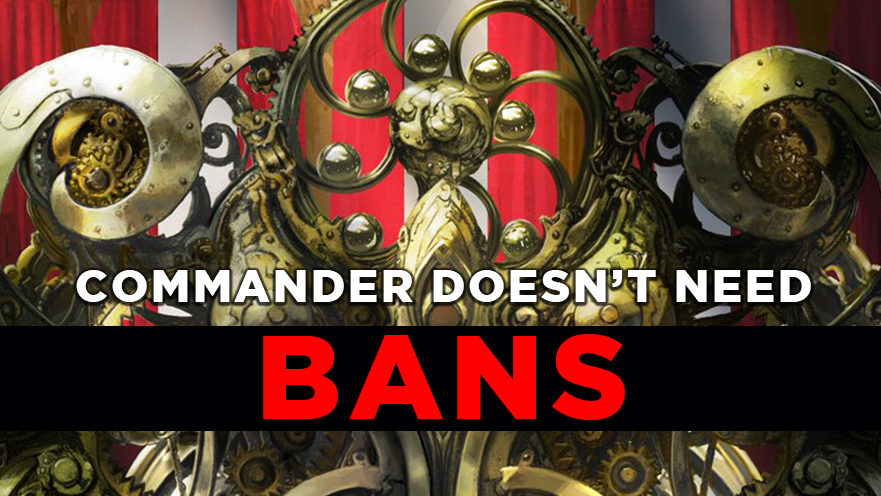Commander is one of Magic‘s best formats. It’s a juggernaut in Magic, played around the world and backed by throngs of fans. As a member of the Commander Advisory Group (CAG), I play a role in supporting the team that manages the rules, philosophy, and banned list we all look to when creating decks.
The CAG was created by the Rules Committee in response to the growth of the format and the wide-ranging feedback across the Commander spectrum. The format’s size and popularity led to many flavors and twists, from Tiny Leaders and Oathbreaker to Duel/French Commander and cEDH. Sheldon Menery introduced each member and explained the goals best himself, but to be perfectly clear, I do not vote on or provide a decision on whether to ban or unban cards in Commander. Information and advice, absolutely, but not a direct vote.

The most recent bans (and unbannings) and philosophy document update created plenty of discussion throughout the Magic community. Magic fans are passionate, and it was unsurprising to see both frustration and joy when the banned list was changed. Losing Paradox Engine was particularly divisive, which is how bannings historically go in Commander. Players love powerful cards, which inevitably become popular cards.
Paradox Engine, and cards like it, join a long list of cards that I (and fellow CAG member Josh Lee Kwai) would like to see pared down, or maybe even eliminated outright. But, for now, I’m glad we have these bans. Let me explain why.
The Banlist as Barrier to Entry
Let’s start with a core challenge for the format: There are many barriers to playing Commander.
- Magic is a complicated game. Adding more rules and requirements creates confusion and keeps new players out of the format, even as the rules provide structure and unique flavor to Magic gameplay.
- Commander’s deep pool of cards and rich set of specialized releases require a massive leap if you’re just playing Magic at Prereleases and with friends. It’s overwhelming enough to look through thousands of unfamiliar cards when building your first deck; remembering the banned list on top of that can be a challenge.
- Several iconic Commander cards are on the Reserved List, which means they’ll never be printed again. In addition to annual Commander set releases that quickly go out of print, the cost to acquire a “typical” Commander deck with popular and powerful cards rivals that of Modern and Legacy decks. One copy of Tundra may be all you need, but that alone can be as expensive as buying a deck for Friday Night Magic outright.

The barriers to playing Commander aren’t unique to the format; every format has a banned list that creates deckbuilding restrictions. Standard has generally been stable (with a few obvious exceptions), but the card pool rotates annually. However, I like the cards I play with often, and I find keeping up with Standard to be less exciting than finding new ways to use my favorite cards. Modern has had a meteoric rise in popularity because of its deep card pool; theoretically, you can build one deck and keep it “forever.” Commander is appealing for the same reason: you never need to change a card in your deck unless you want to.
But when a card is banned in Commander, you have to change your deck. Nobody wants to take a card out of a deck because we’re simply told, “You can’t play that anymore.”
So, why should we ban cards in Commander?
The Banlist as a Baseline
If the Commander banned list didn’t exist, I believe the format would feel much the same as it does today. Some of the most popular cards, and many of the most broken things you could do with them, would include cards that are currently banned. But the reasons we play the format would be the same: we want to have fun, and to be part of a trusted community that shares similar goals and values.
Local groups and individual players already vary widely between creating “weak” and “strong” decks. The popular format twists, mentioned earlier, reflect the tastes and preferences of players looking for something just off the Commander baseline.
It’s the baseline that’s important here, and banned cards fundamentally shape that baseline.

Sharing a set of rules is not the same as sharing a set of goals when playing a game of Magic. For example, if we draft in the same pod, we share the same rules for choosing cards and building decks. But our goals are directly opposed: I want to draft the best deck and win all my games, and so do you.
If we play a match, only one of us (at best) is going to be successful. It’s a zero-sum game where the winner takes all.
Similarly, in Commander, everyone shares the same rules for choosing cards and building decks. But the philosophy document outlines something you don’t find in Standard, Modern, or any other competitive format: Explicit goals for the outcomes of Commander games.
Fewer players win games of Commander than lose them. That’s how multiplayer works. (I checked the math.) Optimizing to explicitly win games as consistently as possible is straightforward: Powerful effects, tutors, and cards that create robust combos will increase your win percentage.
But optimizing a deck that can win games while making other players laugh, smile, and enjoy the experience is tricky. Fun is subjective, after all, so how do you make a deck that inspires stories and doesn’t feel like you’re intentionally playing to lose?
You don’t.
It’s not possible to build the perfect Commander deck for every situation. What I rate as a 10 on a power scale might feel like a 7 or even a 3 to you. What cards I believe make a memorable moment will be different than the cards you enjoy playing. The social contract, laid out by the goal-oriented philosophy document, requires us to communicate and identify mismatches in expectations.
Why Ban Cards in Commander?
For better or worse, the Commander banlist provides concrete examples of things we don’t want in our Commander games.

- Black Lotus and Fastbond generate explosive, fast mana, and create problems for other players.
- Channel, Griselbrand, and Yawgmoth’s Bargain demonstrate that abusing the extra life you start with in Commander isn’t great for others.
- Limited Resources, Iona, Shield of Emeria, and Erayo, Soratami Ascendant show that we should avoid denying basic Magic resources to other players.
- Sway of the Stars and Worldfire suggest annihilating resources and unending the entire game is inadvisable.
- Paradox Engine and Gifts Ungiven make the case against easy-to-set-up combos that end games too quickly.
There are alternative ways to do all those things. It’s true!
- Sol Ring is printed in every preconstructed Commander deck.
- Aetherflux Reservoir isn’t banned, and gaining life is easy.
- Rule of Law is still around.
- Demonic Tutor and Cyclonic Rift can close out games and answer nearly everything. They’re also among the most played cards in decks running their colors.
But the baseline Commander experience is defined by seeing what is explicitly forbidden and then choosing something else to do. We take cues from the banned list, and we use that to discuss our experiences with others. Unless you’re intentionally playing to break the format, like with competitive Commander takes, you’ll hear how your friends feel about effects and make decisions accordingly.
As it turns out, there are just way more players who aren’t into seeing their lands destroyed – or being combo’d out before their fourth turn, or seeing a turn three Ulamog, the Infinite Gyre – than there are players who enjoy doing exactly that.
Making Bad Decks Isn’t What Commander Is About
We can remove the banned list and keep the format as we know it for the same reason Commander is healthy and popular today. Games are fun and memorable because there are so many more things to do in Magic than strictly the most powerful thing possible. Waiving the optimal play in a moment – and ignoring the optimal card when building a deck – isn’t the same as playing to lose, because Commander isn’t zero-sum. The goal that most of us share – from the philosophy document, to the tabletops across events – is for everyone playing to have a good time.
Banning a card is the loudest option the Rules Committee has to point players toward that baseline experience. It’s important that we discourage the games and interactions that lead to poor experiences so we can keep the conversation and social contract of Commander intact.
I’ll continue making the case for unbanning several cards on the Commander banned list. But I’ll also continue to recognize that banning cards can positively affect the Commander format and how we engage with it.
I hope you can see the value, too.

From coast to coast and event to event, Adam Styborski has played Commander around the world. As a member of the Commander Advisory Group, he enjoys learning how others approach the format and finding new ways to put more lands onto the battlefield. If others are having fun, it’s a great game of Commander.

